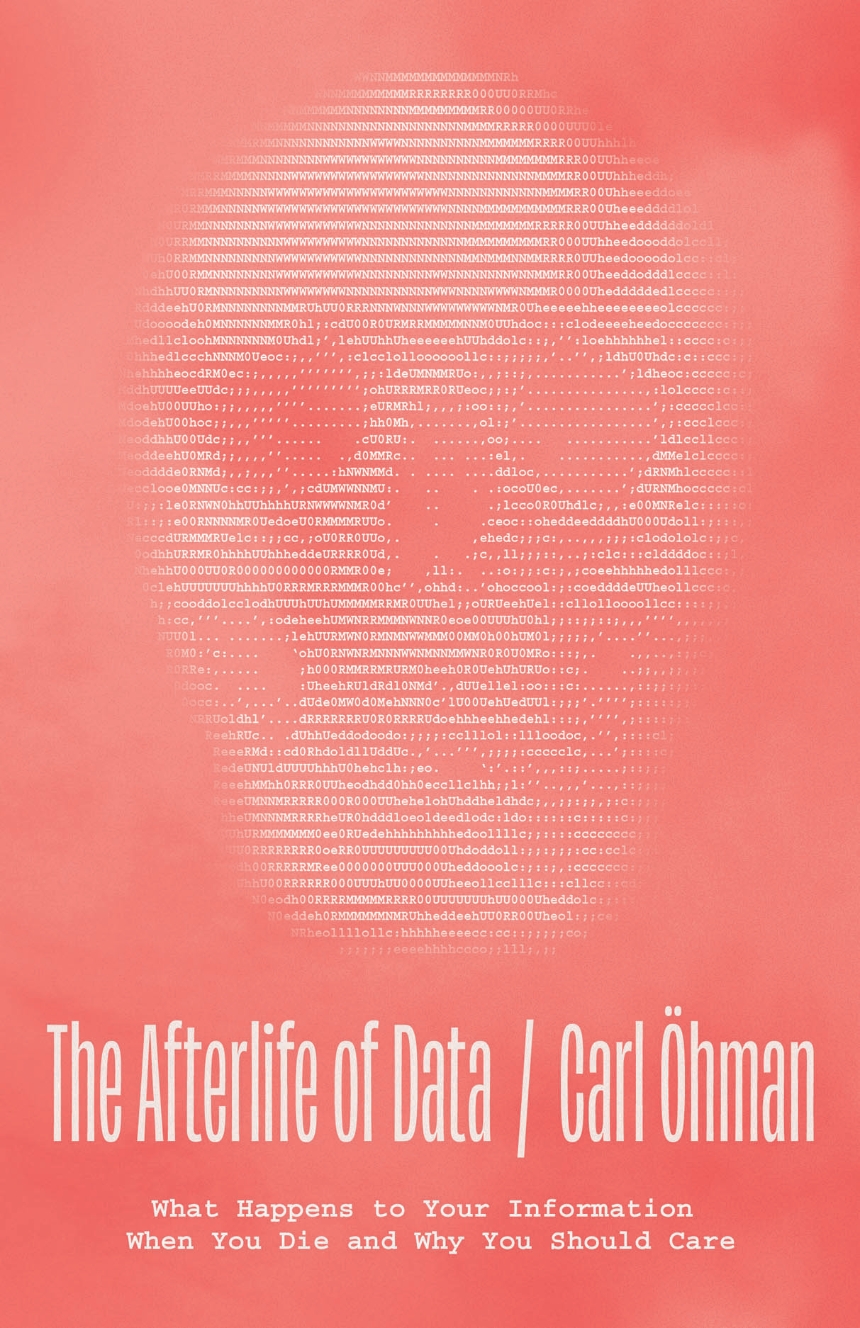The Afterlife of Data
What Happens to Your Information When You Die and Why You Should Care
9780226828220
9780226828237
The Afterlife of Data
What Happens to Your Information When You Die and Why You Should Care
A short, thought-provoking book about what happens to our online identities after we die.
These days, so much of our lives takes place online—but what about our afterlives? Thanks to the digital trails that we leave behind, our identities can now be reconstructed after our death. In fact, AI technology is already enabling us to “interact” with the departed. Sooner than we think, the dead will outnumber the living on Facebook. In this thought-provoking book, Carl Öhman explores the increasingly urgent question of what we should do with all this data and whether our digital afterlives are really our own—and if not, who should have the right to decide what happens to our data.
The stakes could hardly be higher. In the next thirty years alone, about two billion people will die. Those of us who remain will inherit the digital remains of an entire generation of humanity—the first digital citizens. Whoever ends up controlling these archives will also effectively control future access to our collective digital past, and this power will have vast political consequences. The fate of our digital remains should be of concern to everyone—past, present, and future. Rising to these challenges, Öhman explains, will require a collective reshaping of our economic and technical systems to reflect more than just the monetary value of digital remains.
As we stand before a period of deep civilizational change, The Afterlife of Data will be an essential guide to understanding why and how we as a human race must gain control of our collective digital past—before it is too late.
These days, so much of our lives takes place online—but what about our afterlives? Thanks to the digital trails that we leave behind, our identities can now be reconstructed after our death. In fact, AI technology is already enabling us to “interact” with the departed. Sooner than we think, the dead will outnumber the living on Facebook. In this thought-provoking book, Carl Öhman explores the increasingly urgent question of what we should do with all this data and whether our digital afterlives are really our own—and if not, who should have the right to decide what happens to our data.
The stakes could hardly be higher. In the next thirty years alone, about two billion people will die. Those of us who remain will inherit the digital remains of an entire generation of humanity—the first digital citizens. Whoever ends up controlling these archives will also effectively control future access to our collective digital past, and this power will have vast political consequences. The fate of our digital remains should be of concern to everyone—past, present, and future. Rising to these challenges, Öhman explains, will require a collective reshaping of our economic and technical systems to reflect more than just the monetary value of digital remains.
As we stand before a period of deep civilizational change, The Afterlife of Data will be an essential guide to understanding why and how we as a human race must gain control of our collective digital past—before it is too late.
200 pages | 2 halftones | 5 1/2 x 8 1/2 | © 2024
Anthropology: Cultural and Social Anthropology
Philosophy: General Philosophy
Reviews
Table of Contents
Introduction: A Collective Matter
Acknowledgments
Notes
Bibliography
Index
The New Natufians
What Do We Do with the Digital Dead?
Everyone’s Concern
Chapter 1: From Bones to Bytes What Do We Do with the Digital Dead?
Everyone’s Concern
Beginnings
The Deep Time of the Dead
The Portable Dead
The Port from Which We Depart
Where Are We Now?
Chapter 2: How to Think about Digital Remains The Deep Time of the Dead
The Portable Dead
The Port from Which We Depart
Where Are We Now?
What Are Digital Remains?
Ghost Cars and Prayer Bots
The Informational Corpse
Can the Dead Be Harmed?
The Digital Encyclopedia of the Dead
Brutus’s Closet
Not So Valuable After All?
Chapter 3: The Rise of the Digital Afterlife Industry Ghost Cars and Prayer Bots
The Informational Corpse
Can the Dead Be Harmed?
The Digital Encyclopedia of the Dead
Brutus’s Closet
Not So Valuable After All?
Ash & Martha
The Digital Afterlife Industry
Critiquing the Industry
Online Museums
Chapter 4: Who Owns the (Digital) Past? The Digital Afterlife Industry
Critiquing the Industry
Online Museums
Grave Dangers
Who Is Worth Preserving?
What If Facebook Goes Bust?
Orwell’s Warning
Decentralizing Control
Chapter 5: Living in the Post-Mortal Condition Who Is Worth Preserving?
What If Facebook Goes Bust?
Orwell’s Warning
Decentralizing Control
In the Shoes of Max Brod
The Meaning of “Post-Mortal” and “Condition”
Archeopolitan Duties
What Is to Be Done?
EpilogueThe Meaning of “Post-Mortal” and “Condition”
Archeopolitan Duties
What Is to Be Done?
Acknowledgments
Notes
Bibliography
Index
